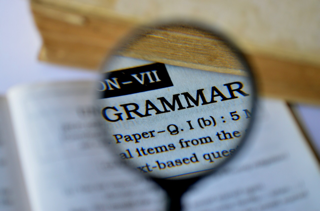
Last week we looked at modal verbs, what they are and how they work. This week we go a little deeper and explore modal verbs dealing with degrees of certainty.
Some modal verbs express absolute certainty, either in the positive or in the negative sense. For example, will, shall, can’t or must.
You will find your keys.
I shan’t be there tomorrow as I have a meeting.
We won’t be late.
You can’t miss the turning.
They must be hungry.
If something is probable, it is more likely to happen than not, but it isn’t completely certain. We can use should or ought to express this degree of certainty/uncertainty.
They ought to/should arrive by 3pm.
The house shouldn’t be difficult to find on the map.
The house oughtn’t to be difficult to find…
When talking about possibility, we can use the modal verb may. If something is possible, it may happen or it may not. The chances are often about even.
I may be there tomorrow or I may not.
He may remember to bring the book.
She may not attend the meeting.
And even weaker possibility can be expressed using might or could. This is often when things are unlikely to happen, but there is still a chance.
We might win the lottery one day.
The weather could clear up before tomorrow.
As always, I recommend Michael Swan’s Practical English Usage if you would like a comprehensive grammar reference. If you have questions about modal verbs or any other area of English grammar, please let me know. I would love to answer your questions in a future post!
One Comment